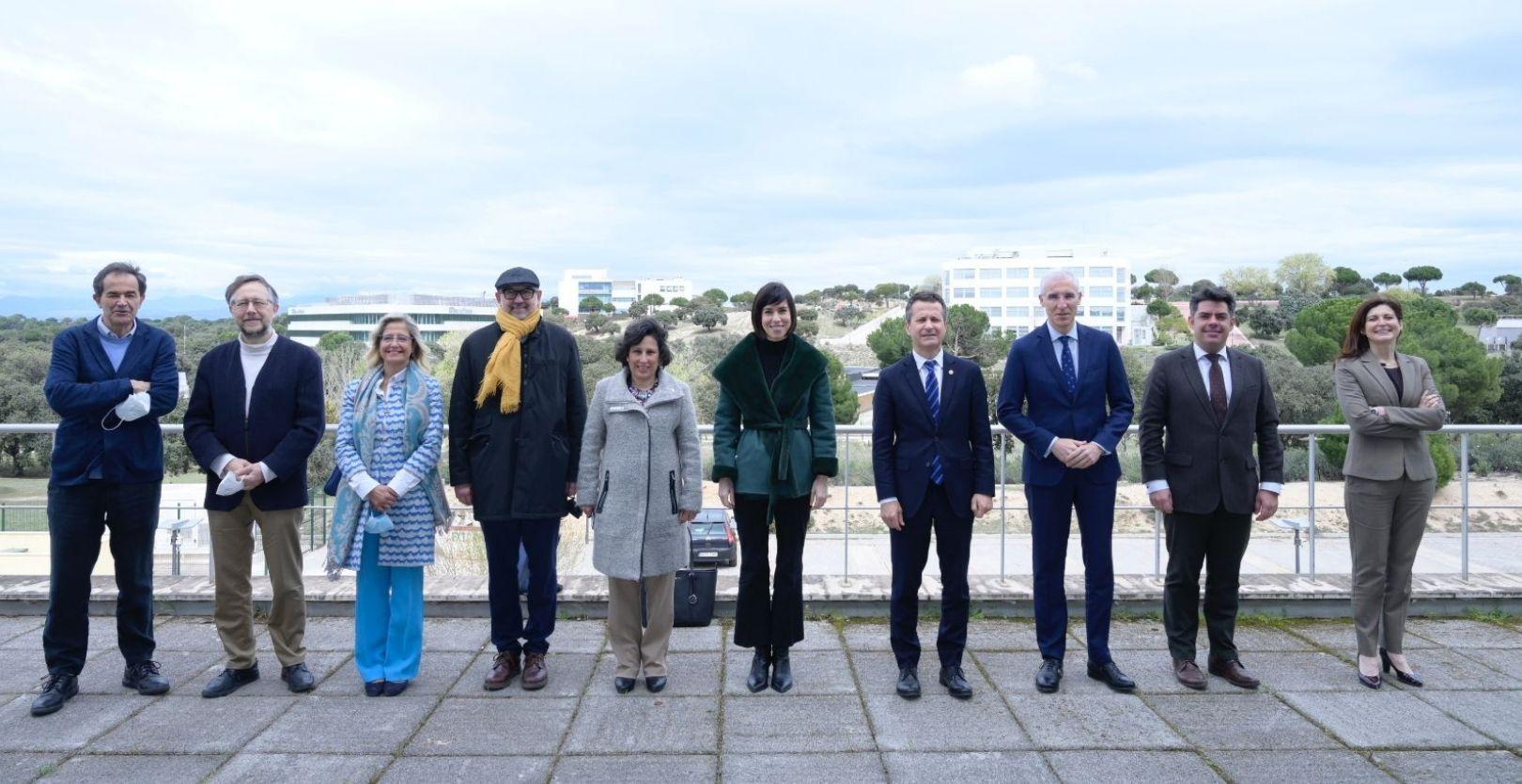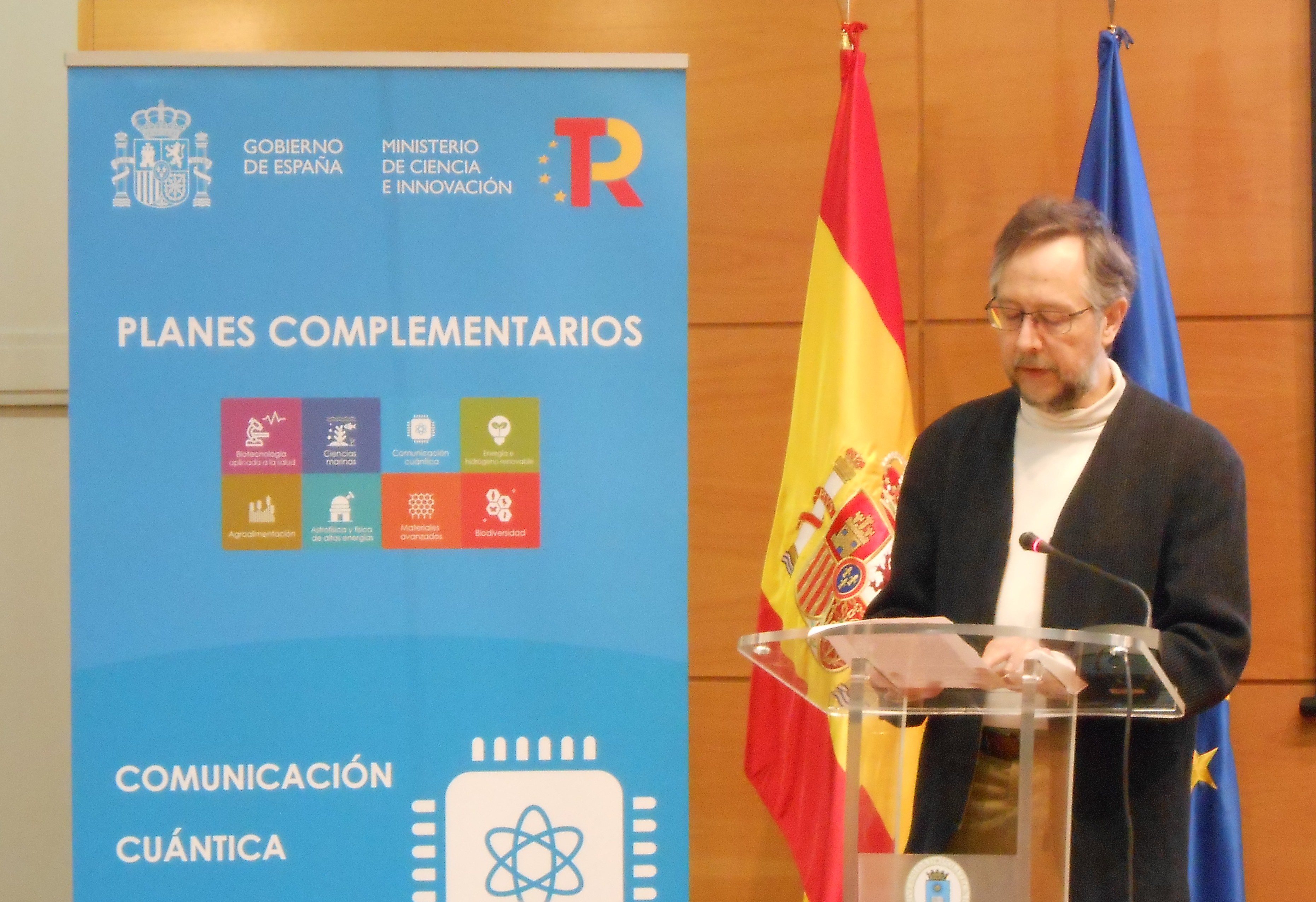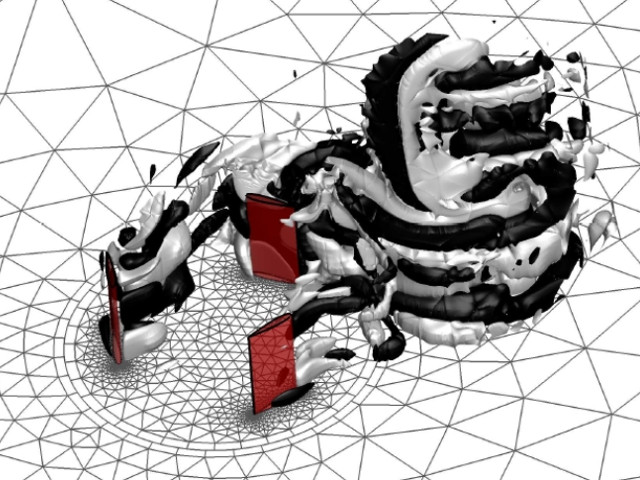March 18, 2022

Last Friday, March 18th, the presentation of the MAD-Q project of the “Plan Complementario de Comunicaciones Cuánticas” took place, of which Vicente Martín (Director of the CCS and professor at the Universidad Politécnica Madrid) is the scientific coordinator. Various authorities attended the event, including the Minister of Science and Innovation of Spain, Diana Morant. Likewise, representatives of the Autonomous Communities Jokin Bildarratz, Minister of Education of País Vasco; Joan Gómez, General Director of Research of Cataluña; Francisco Conde, Second Vice President and Minister of Economy, Business and Innovation of Galicia; Pilar Garcés, Vice Minister of Universities and Research of Castilla y León; and Fidel Rodriguez, Deputy Minister of Universities, Science and Innovation of the Community of Madrid also assisted.

The program has the following strategic objectives:
- Create a high-security Communications Structure for Spain, immersed in European initiatives for these networks.
- Support the development of a European quantum industry.
- Promote a new industrial sector with companies in the digital and cybersecurity fields, thus promoting the European digital transition.
The national project covers actions in several autonomous communities (Madrid, Cataluña, País Vasco, Castilla y León and Galicia), as well as the CSIC at the national level.
The main line of action of this program is given by developments and deployments that can increase its TRL. The developments will be undertaken first for fiber systems , considering both technologies with greater ease of integration in the network and industrialization as well as those more optimal for long distances. Later, projects will include other broader networks, including satellites, which constitutes the necessary space segment in the EuroQCI (European Quantum Communication Infrastructure) for very long-distance communications and, also, communications with an unmanned aerial vehicle. Likewise, technology based on entanglement will be developed within this line, including quantum repeaters for DC over long distances (>300 km) over optical fibers. Another line of research will focus on systems and new protocols with advantages in terms of security, distance, and functionality, as well as security studies of experimental systems and their integration into networks. CCs, however, not only produce secure systems, but their ultimate goal is also the ability to create quantum correlations between any two points in the network. This can be used for ultra-precise distribution of time signals, quantum sensors, distributed quantum computing, etc. These quantum processing technologies, which have a lower TRL but must be developed to obtain all the benefits of a future quantum internet, with key devices such as quantum repeaters, are the subject of other lines of research (both hardware and software). It is important to note that each line may require developments in basic science. Finally, cross-cutting lines of innovation will deal with the training of scientists and engineers who will advance the field, with a special emphasis on the capacity for entrepreneurship which, together with the creation of the industrial ecosystem and the dissemination and exploitation of the results, will effective translation of scientific knowledge into benefits for society.
The deployed Quantum Communications Infrastructure of Madrid is currently one of the nodes of the OpenQKD project that can be seen, from the perspective of the program that we are starting now, as the embryo of the European Quantum Infrastructure, an infrastructure of pan-European quantum communications network that connects all of Europe.



